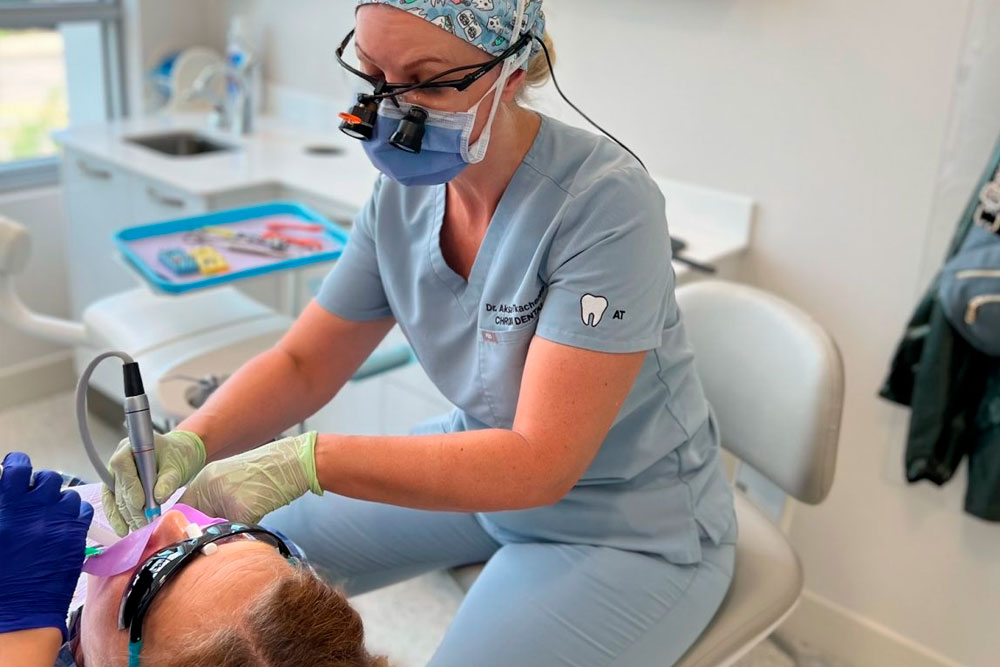How to Avoid Gingivitis?

Gingivitis is a mild, early stage of gum disease. It often shows up as irritation, redness, and swelling of the gums at the base of the teeth. In severe cases, your gums may bleed, especially while brushing. Left untreated, gingivitis can progress to severe gum disease, or periodontitis. In some cases, it can even result in tooth loss. Learning about the causes of gingivitis and taking preventive measures in time can help you avoid serious gum disease and maintain good oral health.
What leads to gingivitis?
There can be several reasons but Gingivitis is usually the result of poor oral hygiene. If you do not maintain healthy oral habits, bacteria and food particles can deposit on the teeth, forming plaque. If it is not removed, plaque can harden and become tartar. As time passes, tartar deposits can cause inflammation, swelling and even bleeding in the gums. Factors that can lead to gingivitis include:
Poor oral hygiene: Irregular and improper brushing and flossing can cause plaque to buildup on the teeth.
Smoking and/or tobacco use: Tobacco consumption in any form can jeopardize your ability to fight infection, leading to gingivitis.
Diabetes: People with high blood sugar and diabetes are at a high risk for infections, including gingivitis.
Medications: Some medications can adversely affect the flow of saliva. Since saliva protects your gums and teeth, lack of saliva can eventually lead to gum disease.
Poor nutrition: A diet lacking in nutrients can cause several diseases, including gum disease.
Hormonal changes: Hormonal changes during pregnancy, menstruation, and menopause can cause increased sensitivity in the gums, making you vulnerable to gingivitis.
Hereditary causes: Genetic factors can make some people more susceptible to gum disease than others.
Ways to prevent Gingivitis
Prevent Gingivitis by maintaining a healthy oral hygiene routine. You can adopt several practices to improve your oral and gum health.
Good Oral Health Habits: Develop healthy oral hygiene habits. Brush your teeth properly twice a day for at least two minutes. Brush all the surfaces of all the teeth. You could use an electric toothbrush to effectively remove plaque. Daily flossing is necessary to remove plaque and any food particles lodged between the teeth that brushing may have failed to remove. Rinse your mouth with an anti-bacterial mouthwash to remove plaque forming bacteria. Replace your toothbrush every few months or sooner, if the bristles become frayed. Dental Checkups and
Cleaning: Visit your dentist regularly for an oral health checkup. Your dentist is trained to spot any signs of gingivitis and other oral disease. They can treat the issue before it worsens. Your dentist can also provide personalized advice on your oral health. Despite good oral hygiene, plaque and tartar formation may occur. Regular cleanings by a dentist can remove the buildup and prevent gingivitis.
Drink plenty of water: Staying hydrated is good for your overall health. But water can also wash away any food particles and bacteria that may otherwise cause gum disease. It also promotes the production of saliva. Saliva neutralizes acids produced by the mouth bacteria. Salivary enzymes can protect the teeth and gums from infection.
Quit tobacco and smoking: Tobacco promotes inflammation, which doesn’t let your gums heal. Tobacco adversely affects the immune system and takes away your ability to fight disease. Quit smoking and any other form of tobacco consumption to lower your risk of developing gingivitis. It will also allow your body to fight infections.
Eat a balanced diet: Your diet should contain all essential nutrients, including vitamins and minerals. It will ensure your gums do not suffer due to a nutrient deficiency.
Be an active participant in maintaining your own health: If you have a chronic health condition, like diabetes, seek a doctor’s help in managing it effectively. Tell your doctor if a medication seems to affect your gums or oral health. If you feel continuously stressed, find ways to reduce that stress or seek the help of a mental health practitioner. Chronic stress can affect your immune system, making you vulnerable to gum disease.
Gingivitis is not a serious disease but can become a precursor to many other serious oral health issues. But you can keep your gums healthy with proper oral hygiene routine, regular dentist visits, good nutrition and hydration, and quitting tobacco. If you notice red, swollen or bleeding gums, see your dentist immediately to address it in time.
